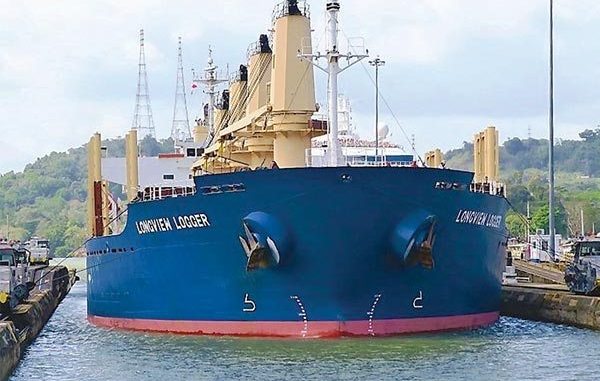I promised myself I wouldn’t stare. As part of the Caravan tour to Panama, we were scheduled to visit the Embera tribe, a group of indigenous peoples where the women are naked from the waist up. I’m not sure whether I was disappointed or relieved to find them fully clothed–clearly dressed up for the tourists.
The small tribe of about 33 residents lives 10 hours away from the major reservation and is only accessible by boat. The founder of this village had helped train U.S. astronauts in survival techniques in the 1960s. Today the tribe shares its traditions and handicrafts with tour groups.
This was just one of many memorable moments from my trip to Panama. Even though the canal is the indisputable highlight of the trip, the tour included so much more. For such a small country, there was a lot to explore.
The famous canal
There’s a reason why the Panama Canal is the primary attraction. The canal is rated the number one modern engineering wonder of the world by the Society of Civil Engineers. This technological marvel was conceived and created over 100 years ago and cannot be even remotely improved upon today.
It’s built upon a narrow stretch of land that early tribes used to traverse from South to North America, and Spanish explorers later followed to transport gold to ships sailing to Spain. After a harrowing history of French failure and American success, the Panama Canal, covering 50 miles, finally opened in 1914, under the auspices of the U.S. Panama took over complete control in 1999.
An engineering marvel
The new inter-oceanic waterway changed the world: continents were connected, cultures intermingled, the Pacific and Atlantic oceans became accessible and international transportation and globalization blossomed.
You would need an engineering degree to understand the complexities of the canal operations. Suffice it is to say, there are locks that raise or lower the ships so they can connect from one ocean to the other. It’s mesmerizing to watch from afar and even more so from the deck of an actual ship going through the process.
Miraflores, one of the main locks, contains an extensive, exceedingly well-done museum that explains in excruciating detail the whole history and intricacies of the canal. You could spend an entire day there exploring the four floors and remain endlessly enthralled.
Locks ahoy!
Watching the ships go through the locks is a hypnotic triumph of technology that is hard to conceptualize. And then we went through the locks ourselves. We started on the Atlantic side at 87 feet above sea level. After going through three locks lowering us about 30 feet at each stop, we approached sea level and entered into the Pacific Ocean.
The first time I saw the lock open ahead of me I felt like a part of history. Watching the water levels recede and feeling the boat sink down was especially impressive considering this same procedure has occurred in the exact same way for over 100 years.
Monkeys, crocodiles and birds, oh, my!
![]() An archaeological site celebrates the remains of the first city built in Panama by the Spaniards in 1519. We rode a small boat circling the Gatun Lake viewing the ships awaiting passage and the locks themselves from a different perspective. Oh, yes, and there were also crocodiles, birds and monkeys to be seen.
An archaeological site celebrates the remains of the first city built in Panama by the Spaniards in 1519. We rode a small boat circling the Gatun Lake viewing the ships awaiting passage and the locks themselves from a different perspective. Oh, yes, and there were also crocodiles, birds and monkeys to be seen.
“Stay calm if a Capuchin monkey should jump on the boat,” the captain told us repeatedly.
No one stayed calm, but none of us would have traded the experience of watching these playful primates vying over the bananas thrown on the deck. The cacophony of camera clicks formed a symphony of its own.
Then there’s Panama’s skyline—an unexpected visual wonder. It’s filled with skyscrapers of so many shapes, sizes and colors that they are more reminiscent of sculptures than buildings. The buildings were architectural art revealing creativity, inventiveness and ingenuity—adjectives not usually associated with business offices and condos. The strain in my neck from looking skyward was worth the series of impressive edifices.
So, yes, there is so much that Panama has to offer! As if it needed anything other than the Canal to entice. For information on escorted tours, visit www.caravan.com.
